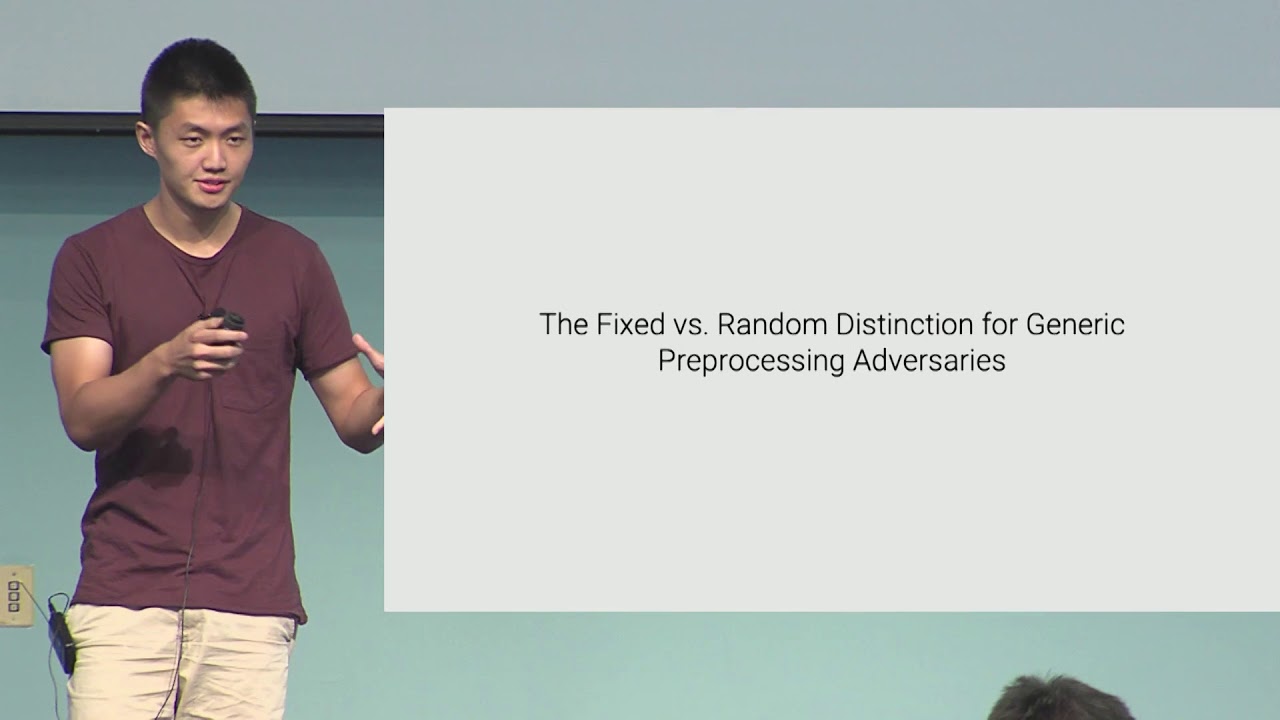Welcome to the resource topic for 2019/202
Title:
The Distinction Between Fixed and Random Generators in Group-Based Assumptions
Authors: James Bartusek, Fermi Ma, Mark Zhandry
Abstract:There is surprisingly little consensus on the precise role of the generator g in group-based assumptions such as DDH. Some works consider g to be a fixed part of the group description, while others take it to be random. We study this subtle distinction from a number of angles. - In the generic group model, we demonstrate the plausibility of groups in which random-generator DDH (resp. CDH) is hard but fixed-generator DDH (resp. CDH) is easy. We observe that such groups have interesting cryptographic applications. - We find that seemingly tight generic lower bounds for the Discrete-Log and CDH problems with preprocessing (Corrigan-Gibbs and Kogan, Eurocrypt 2018) are not tight in the sub-constant success probability regime if the generator is random. We resolve this by proving tight lower bounds for the random generator variants; our results formalize the intuition that using a random generator will reduce the effectiveness of preprocessing attacks. - We observe that DDH-like assumptions in which exponents are drawn from low-entropy distributions are particularly sensitive to the fixed- vs. random-generator distinction. Most notably, we discover that the Strong Power DDH assumption of Komargodski and Yogev (Komargodski and Yogev, Eurocrypt 2018) used for non-malleable point obfuscation is in fact false precisely because it requires a fixed generator. In response, we formulate an alternative fixed-generator assumption that suffices for a new construction of non-malleable point obfuscation, and we prove the assumption holds in the generic group model. We also give a generic group proof for the security of fixed-generator, low-entropy DDH (Canetti, Crypto 1997).
ePrint: https://eprint.iacr.org/2019/202
Talk: https://www.youtube.com/watch?v=qtVd9WF0z0Q
See all topics related to this paper.
Feel free to post resources that are related to this paper below.
Example resources include: implementations, explanation materials, talks, slides, links to previous discussions on other websites.
For more information, see the rules for Resource Topics .
